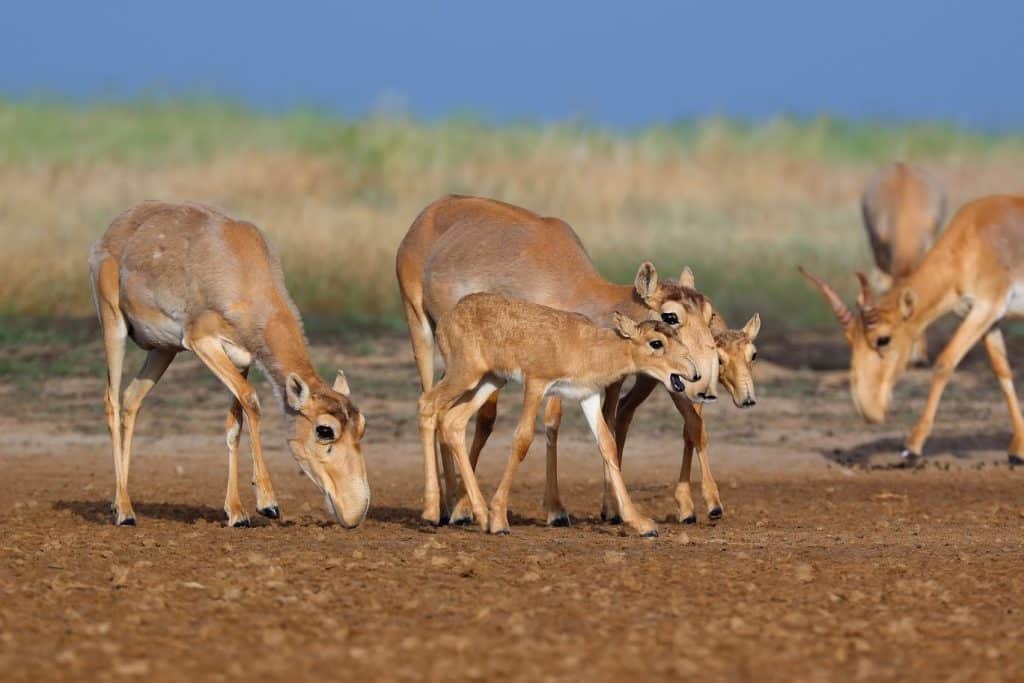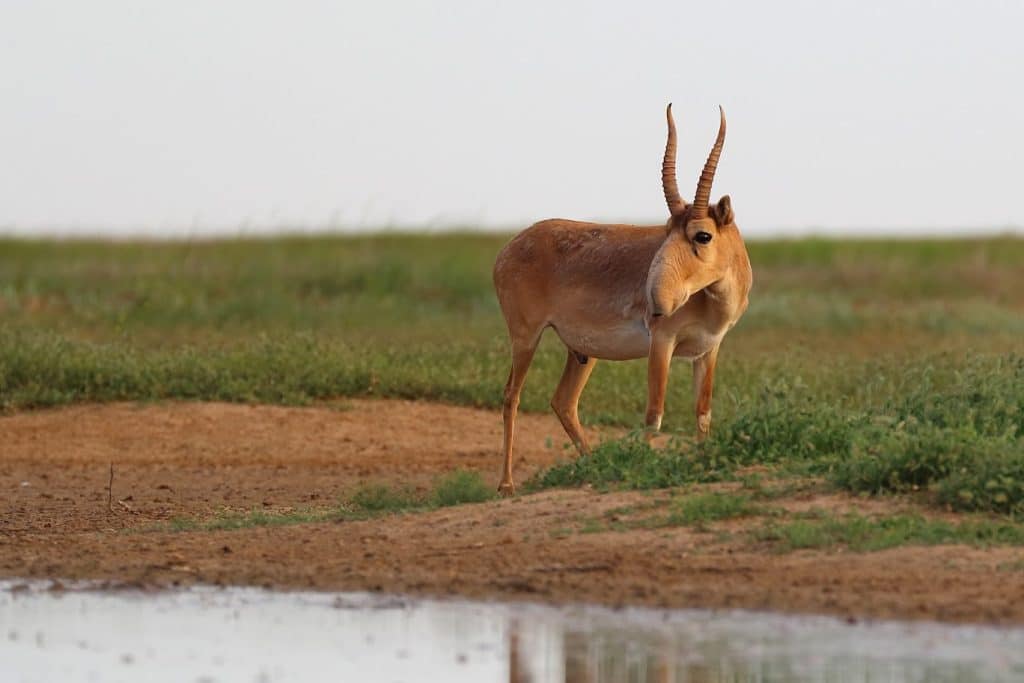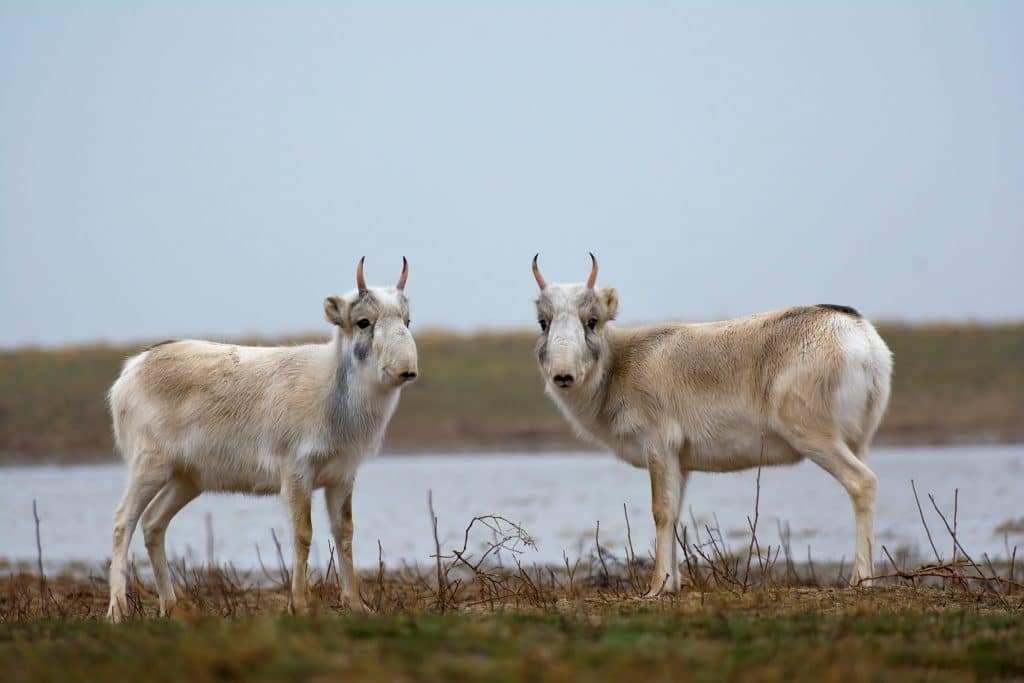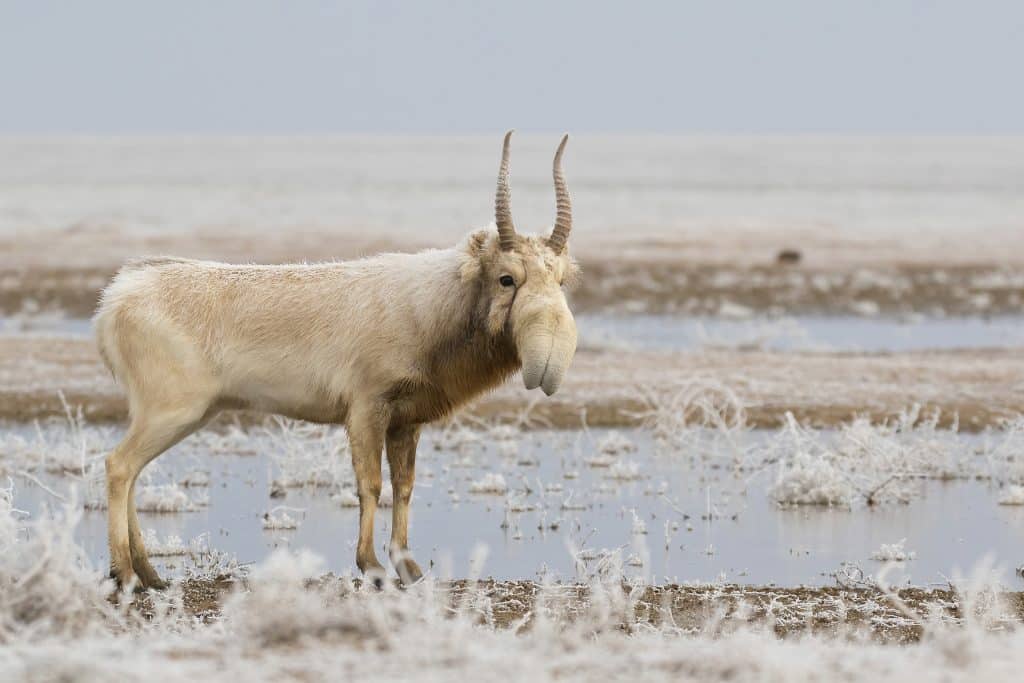Celebrating Success: Saiga Antelope’s Remarkable Recovery
Original article published by Saiga Conservation Alliance; joint press release available here.
In a rare and remarkable conservation success, the International Union for Conservation of Nature (IUCN) has reclassified the saiga antelope (Saiga tatarica) from Critically Endangered to Near Threatened on the Red List, signifying a substantial global recovery for the species. This positive shift, announced on December 11, 2023, highlights the tremendous efforts of national and international conservation initiatives.
The saiga antelope, once on the brink with a population of only 48,000 in 2005, has experienced an extraordinary rebound in Kazakhstan. Current estimates now surpass 1.9 million, showcasing a triumph attributable to nearly two decades of dedicated conservation work by governments, NGOs, and research organisations.

This success story would not have been possible without the collaborative efforts of numerous organisations. This includes particularly the Altyn Dala Conservation Initiative, NABU, Wildlife Conservation Society, and WWF-Mongolia, along with the Saiga Conservation Alliance (SCA).
SCA’s work for saiga is based on long-term support from many donors who cared about the species’ fate. Particular mention goes to the US Fish and Wildlife Service, Peoples Trust for Endangered Species, the Wildlife Conservation Network, and Whitley Fund for Nature, who have all supported our work over many years. The Convention on Migratory Species (CMS) has played a pivotal role in uniting governments and civil society organisations across the saiga range. An international Work Programme and Action Plan on the Conservation and Sustainable Use of the Saiga Antelope, in coordination with CITES, facilitated coordinated efforts. These initiatives included anti-poaching measures, habitat improvements, population monitoring, and community engagement.

While celebrating this achievement, the conservation community emphasises the ongoing need for action. Urgent efforts are required to ensure a sustainable future for saiga antelope in Kazakhstan and to promote recovery in Mongolia, the Russian Federation, and Uzbekistan. Despite positive trends, challenges such as poaching, disease, climate change, disturbance, and infrastructure development persist, posing threats to the saiga’s full recovery.
Professor E.J. Milner Gulland from Oxford University, Co-Founder and Chair of the Saiga Conservation Alliance, expresses optimism about the future. She states, “It’s been the greatest privilege and honour for me to work alongside so many passionate conservationists over the years; the work is not finished.”
Elena Bykova, Head of the Laboratory of the Endangered Species, Institute of Zoology, Academy of Sciences of Uzbekistan and SCA’s Uzbek Programme Lead added, “This achievement serves as both a beacon of hope and a call to action.”
Elena Bykova highlights the nuanced nature of the saiga’s status across different countries. While Kazakhstan celebrates a significant recovery, Uzbekistan still lists the saiga as critically endangered. Linear infrastructure and barriers obstructing migratory routes threaten the Uzbek population, emphasising the importance of tailored conservation strategies.

Such an improvement in status shows that conservation and management measures are working and must continue. Yet despite this good news, conservation action is still urgently needed to ensure that saiga antelope has a long-term sustainable future in Kazakhstan, and to ensure that populations recover in Mongolia, the Russian Federation, and Uzbekistan.
Current Russian population numbers are 38,000 up from 4,500 in 2016, while Uzbekistan hosts about 500 saiga—200 of which were first discovered in the Aral Sea Region in 2021; the remaining 300 are isolated from the main Ustyurt population. In early 2023 a census of the Mongolian subspecies reported a population number of 13,925 individuals. An increase from 10,077 the previous year.

In conclusion, the reclassification of the saiga antelope is a testament to the power of collaboration and sustained conservation efforts. While celebrating this conservation triumph, it is crucial to remain vigilant and address the challenges that lie ahead, ensuring a harmonious coexistence for saiga antelope across its entire range.




